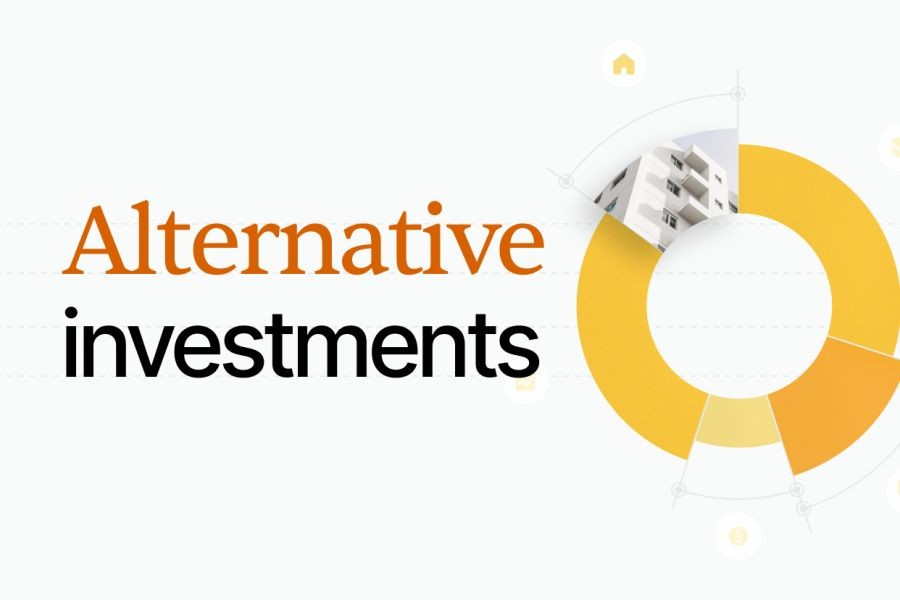New Zealand is a vibrant landscape for alternative investments, with its unique mix of emerging industries, robust regulatory frameworks, and a growing emphasis on sustainability. Balancing risk in an alternative investment portfolio is crucial for Kiwis looking to tap into opportunities beyond traditional stocks and bonds. This article delves into strategies for managing these risks effectively, with a particular focus on insights relevant to New Zealand's market dynamics.
The Importance of Alternative Investments in New Zealand
Alternative investments, such as private equity, real estate, and green technologies, are becoming increasingly popular among New Zealand investors. With the Reserve Bank of New Zealand reporting a steady increase in household wealth diversification, there's a clear trend toward broadening investment horizons. This shift is driven by the desire to achieve higher returns and hedge against market volatility.
Local Context: New Zealand’s Green Investment Boom
New Zealand's commitment to sustainability plays a significant role in shaping its investment landscape. The government’s Zero Carbon Act and initiatives to promote renewable energy set the stage for green tech as a promising investment avenue. According to Stats NZ, the renewable energy sector is projected to grow by 25% over the next decade, making it an attractive, albeit risky, investment option.
Key Strategies for Balancing Risk
Balancing risk in an alternative investment portfolio requires a strategic approach. Here are some key strategies:
- diversification: Spread investments across different asset classes to mitigate risks. For instance, balancing investments in both tech startups and real estate can provide stability against market fluctuations.
- Due Diligence: Conduct thorough research on potential investments. Tools like Sharesight can help in tracking investment performance and assessing risks.
- Risk Assessment Models: Utilize financial models that account for market volatility, interest rates, and geopolitical factors. Customized models that consider New Zealand’s unique market conditions can be particularly beneficial.
Case Study: Kiwi Property Group's Sustainable Investment Strategy
Kiwi Property Group, a major player in New Zealand's real estate sector, has successfully integrated sustainability into its investment strategy. By focusing on green buildings and sustainable development, they have not only reduced their carbon footprint but also secured higher tenant satisfaction and rental yields.
Problem: High operational costs and increasing demand for sustainable practices posed challenges.
Action: They adopted green building certifications and implemented energy-efficient technologies across properties.
Result: Achieved a 30% reduction in energy consumption and increased rental yields by 15% within two years.
Takeaway: Emphasizing sustainability can enhance investment returns and align with New Zealand's regulatory trends.
Common Misconceptions and Mistakes in Alternative Investments
- Myth: "All alternative investments are high-risk." Reality: While riskier than traditional assets, thorough research and diversification can significantly mitigate risks.
- Myth: "Sustainability doesn’t impact returns." Reality: Sustainable investments often outperform non-sustainable counterparts, as evidenced by Kiwi Property Group’s success.
Biggest Mistakes to Avoid
- Ignoring market trends: Stay informed on local and global market shifts. For instance, the rise of renewable energy in NZ presents both opportunities and challenges.
- Over-leveraging: Excessive borrowing can amplify losses. It's crucial to maintain a balanced leverage ratio.
- Neglecting exit strategies: Always have a clear plan for exiting investments to avoid being caught in unfavorable market conditions.
Future Trends and Predictions
As New Zealand continues to prioritize sustainability, alternative investments in green technologies and infrastructure are set to soar. A report by Deloitte predicts that by 2030, 40% of New Zealand’s energy will come from renewable sources. Investors who align their portfolios with these trends are likely to see substantial returns while contributing to a sustainable future.
Conclusion: The Path Forward
Balancing risk in an alternative investment portfolio requires a strategic, informed approach. By leveraging New Zealand's unique market conditions and focusing on sustainability, investors can achieve favorable outcomes. Are you ready to revamp your investment strategy? Consider integrating these insights into your portfolio today.
People Also Ask (FAQ)
- How do alternative investments impact New Zealand’s economy? Alternative investments drive innovation and job creation, particularly in emerging sectors like renewable energy.
- What are the biggest misconceptions about alternative investments? Many believe they are too risky, but diversification and due diligence can effectively manage these risks.
- What upcoming changes could affect alternative investments in New Zealand? The Zero Carbon Act and increased focus on sustainability will significantly influence investment opportunities.
Related Search Queries
- Alternative investments New Zealand
- Risk management in investment portfolios
- Sustainable investment strategies NZ
- New Zealand renewable energy investments
- Kiwi Property Group investment strategy































